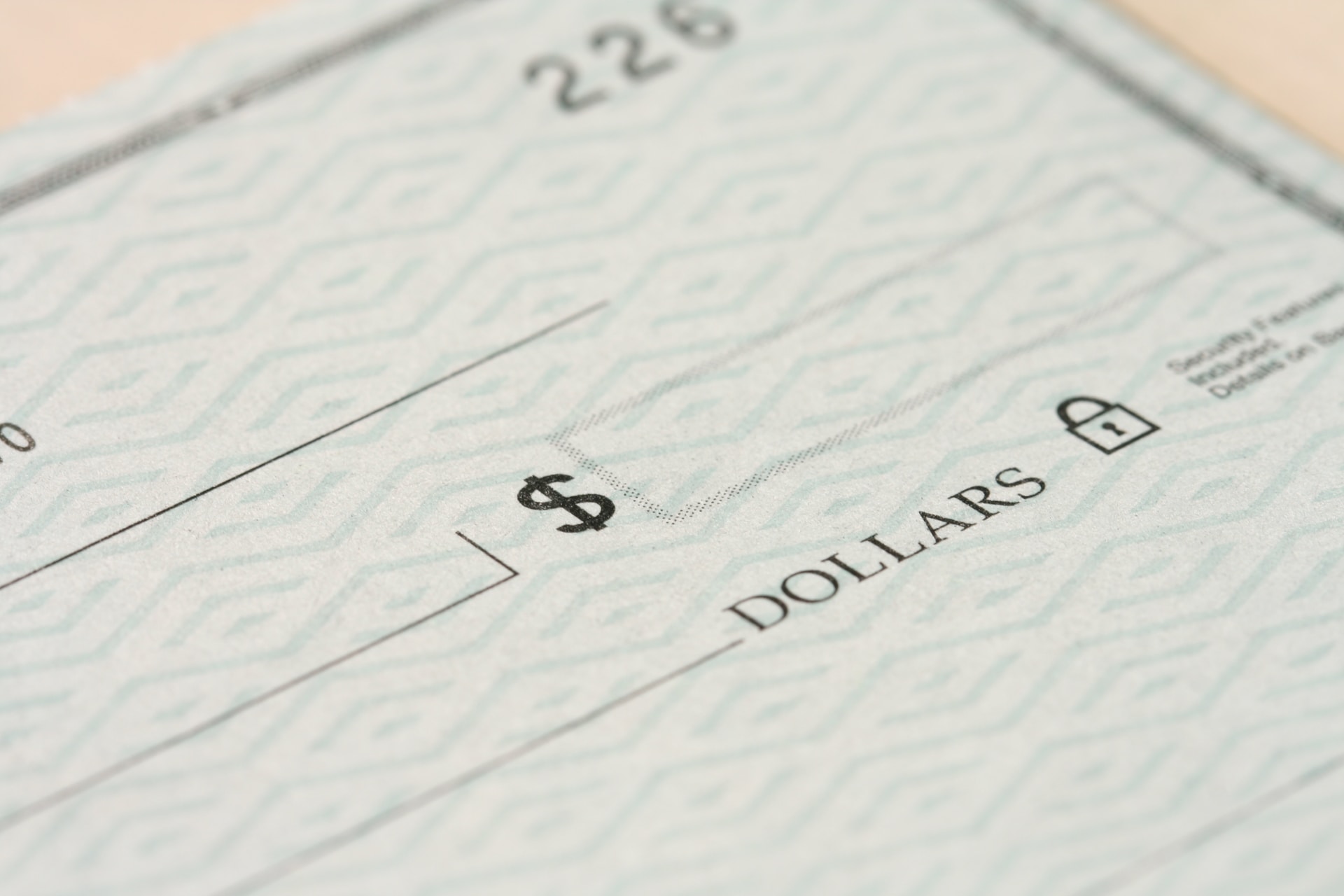When it comes to handling finances, understanding the rules and regulations is crucial to avoid any legal complications. One aspect that often raises questions is the practice of post-dating checks. Have you ever wondered if it’s legal to post-date a check?
Table of Contents
- Definition of post-dating a check
- Importance of understanding the legality of post-dating checks
- Understanding the Function of a Check
- General Rules Regarding Post-Dated Checks
- Legality of Post-Dated Checks
- Potential Issues and Consequences
- Best Practices and Recommendations
- Final Thoughts
Definition of post-dating a check
Post-dating a check refers to the act of writing a future date on a check that is later than the current date. For example, if today is the 15th of July, but you write a check dated for the 1st of August, you have effectively post-dated the check. The intention behind post-dating a check is often to ensure that the recipient does not cash it until the specified date.
Importance of understanding the legality of post-dating checks
It is essential to have a clear understanding of the legality surrounding post-dated checks for several reasons. First and foremost, doing so helps individuals and businesses make informed financial decisions. By knowing the rules and potential consequences associated with post-dating checks, you can avoid unnecessary risks and ensure that your transactions are conducted in compliance with the law.
Moreover, understanding the legality of post-dating checks allows you to protect your own interests. If you plan to issue a post-dated check, you need to be aware of any potential risks or liabilities that may arise from doing so. Similarly, if you receive a post-dated check, understanding the legal implications can help you make informed choices regarding cashing or depositing the check.
Understanding the Function of a Check
At its core, a check is a written order from the account holder of a bank to pay a specified amount of money to another party. When you write a check, you are instructing your bank to transfer funds from your account to the recipient’s account. The check includes various details, such as the payee’s name, the monetary amount, your signature, and the date.
Checks offer several advantages. They provide a paper trail of transactions, which can be useful for record-keeping purposes. Additionally, checks allow for a delayed payment process, providing time for funds to be available in your account before the check is cashed or deposited.
Role of the date on a check
The date written on a check serves multiple purposes. Firstly, it helps establish the validity of the check. Banks and financial institutions often require checks to be presented within a certain timeframe, typically within six months of the date written. This timeframe ensures that checks are processed promptly and helps maintain accurate accounting records.
Secondly, the date on a check indicates the earliest date on which the recipient can cash or deposit the check. If the date on the check is in the future, it signifies that the funds should not be accessed until that date. This brings us to the concept of post-dating.
Post-dating a check involves writing a date on the check that is later than the current date. This practice is often done to inform the recipient that the funds should not be accessed until the specified date. However, it’s crucial to understand that the date on a check does not necessarily determine its negotiability or the recipient’s ability to cash or deposit it.
General Rules Regarding Post-Dated Checks
The legality of post-dating checks can vary from one jurisdiction to another. It is essential to familiarize yourself with the laws and regulations specific to your location to ensure compliance. In many countries, including the United States, the regulations related to post-dated checks are governed by the Uniform Commercial Code (UCC) or similar statutes.
Under the UCC, a post-dated check is generally valid unless the issuer has provided notice to the bank or the recipient that the check should not be deposited before the specified date. However, it’s important to note that the UCC provides a framework, and individual states may have their own variations or additional requirements regarding post-dated checks.
Common practices and accepted norms
While laws and regulations provide a legal framework for post-dated checks, there are also common practices and accepted norms that influence how these checks are handled in practice. For example, some financial institutions may have internal policies that discourage the acceptance of post-dated checks or place certain restrictions on their processing.
It is common for banks to process checks based on the date written, regardless of whether it is post-dated or not. This means that a recipient may be able to cash or deposit a post-dated check before the specified date, even if the issuer intended otherwise. However, practices can vary, and it is advisable to check with your bank or financial institution to understand their specific policies regarding post-dated checks.
In addition, communication between the issuer and the recipient plays a crucial role. If you plan to issue a post-dated check, it is recommended to inform the recipient of your intention and reach a mutual understanding regarding the agreed-upon date for cashing or depositing the check. Open dialogue and clarity can help prevent misunderstandings and ensure that both parties are aware of the intended use of the post-dated check.
Legality of Post-Dated Checks
The legality of post-dated checks can be subject to different perspectives and interpretations. Some argue that post-dating a check is merely a conditional promise to pay, while others contend that it is an attempt to alter the terms of the check. The prevailing legal perspective may depend on jurisdiction and local regulations.
It’s important to note that individual banks and financial institutions may also have their own policies and interpretations regarding post-dated checks. Therefore, it’s advisable to consult with your bank or legal counsel to understand their specific guidelines and how they approach post-dated checks.
Relevant laws and regulations
Overview of relevant legislation (e.g., Uniform Commercial Code)
The Uniform Commercial Code (UCC) is a set of laws that govern commercial transactions in the United States. While it does not explicitly address post-dated checks, it provides a framework for understanding the legal principles related to checks and negotiable instruments.
Under the UCC, a post-dated check is generally considered a valid instrument unless the issuer gives notice to the bank or the recipient regarding the post-dating. However, individual states may have their own variations or additional requirements regarding post-dated checks.
It’s crucial to research and understand the specific laws and regulations of your jurisdiction, as they may differ from the UCC or have additional stipulations regarding post-dated checks.
Case law and court decisions
In addition to statutory laws, case law and court decisions can play a significant role in shaping the legal landscape surrounding post-dated checks. Court decisions provide interpretations and guidance on how post-dated checks are treated in different scenarios and may establish precedents that influence future cases.
Studying relevant case law can help shed light on how courts have interpreted post-dated checks and the legal implications associated with them. This can provide valuable insights into the potential consequences and outcomes of using post-dated checks in various circumstances.
Potential Issues and Consequences
Post-dated checks can give rise to various problems and complications. Some of the common issues include:
- Early deposit or cashing: Despite post-dating a check, there is no guarantee that the recipient will honor the intended date and delay cashing or depositing the check. If the recipient decides to process the check before the specified date, it can create financial strain for the issuer, potentially resulting in insufficient funds.
- Insufficient funds: Post-dated checks can bounce if there are insufficient funds in the issuer’s account when the check is presented for payment. This can lead to penalties, fees, and a damaged financial reputation for the issuer.
Potential consequences for issuing and receiving post-dated checks
Bouncing or non-sufficient funds (NSF) issues
When a post-dated check bounces due to insufficient funds, it can have several repercussions:
- Overdraft fees: The issuer may incur costly overdraft fees from their bank if the account balance is insufficient to cover the check amount.
- Late payment or penalties: If the recipient relies on the post-dated check for payment, the delay caused by the check bouncing can result in late payment fees or penalties for the recipient, impacting their financial obligations or commitments.
- Damage to credibility: Bouncing a check can damage the issuer’s financial reputation and credibility, making it harder to establish trust in future transactions.
Fraudulent intent and its implications
Using post-dated checks with fraudulent intent can have severe legal consequences:
- Legal implications: If it is determined that an issuer knowingly wrote a post-dated check with the intention to defraud, they may face legal charges and penalties for fraudulent activities.
- Civil liabilities: The issuer may be held liable for any damages or losses suffered by the recipient as a result of fraudulent intent.
- Reputation damage: Engaging in fraudulent activities can tarnish an individual’s reputation and make it difficult to conduct future business or financial transactions.
To mitigate potential issues and consequences associated with post-dated checks, it is crucial to communicate openly and transparently with the recipient, maintain sufficient funds in the account, and consider alternative payment methods when necessary.
Best Practices and Recommendations
Suggestions for individuals and businesses regarding post-dated checks
- Clear communication: Prioritize open and transparent communication with the recipient when issuing a post-dated check. Discuss and mutually agree upon the intended date for cashing or depositing the check to avoid misunderstandings or premature processing.
- Sufficient funds: Ensure that your bank account has sufficient funds to cover the amount of the post-dated check. Regularly monitor your account balance to avoid bouncing the check due to non-sufficient funds (NSF) issues.
- Keep accurate records: Maintain proper documentation of post-dated checks, including dates, recipients, and agreed-upon terms. This can serve as a reference in case of any discrepancies or disputes.
- Understand legal requirements: Familiarize yourself with the laws and regulations specific to your jurisdiction regarding post-dated checks. Consult legal counsel or financial advisors to gain a comprehensive understanding of the legal implications and responsibilities associated with these transactions.
Alternative payment methods to consider
- Electronic payments: Explore electronic payment methods such as online banking transfers, electronic fund transfers (EFT), or digital payment platforms. These methods offer convenience, speed, and security while eliminating the risks associated with post-dated checks.
- Scheduled payments: Set up automated recurring payments through your bank or payment service providers. This allows you to schedule payments in advance, ensuring timely and hassle-free transactions without the need for post-dated checks.
- ACH payments: Utilize Automated Clearing House (ACH) payments, which enable direct bank-to-bank transfers. ACH payments are efficient, secure, and can be scheduled for future dates, providing an alternative to post-dated checks.
- Online payment gateways: Consider using online payment gateways that offer secure and reliable payment processing for individuals and businesses. These platforms provide various payment options, including credit/debit cards, e-wallets, and bank transfers.
By adopting these best practices and considering alternative payment methods, individuals and businesses can streamline their financial transactions, reduce potential risks, and ensure smoother and more secure payment processes.
Final Thoughts
Understanding the legality of post-dating checks is crucial for responsible financial management. While post-dating a check is generally valid, it does not guarantee that the recipient will honor the intended date. The date on a check alone may not determine its negotiability.
To navigate post-dated checks effectively, it is essential to communicate clearly, maintain sufficient funds, and be aware of the laws and regulations specific to your jurisdiction. Additionally, considering alternative payment methods can provide convenience, security, and reliability in financial transactions.

Meds is an attorney currently residing on the East Coast, where he practices law. While his primary focus lies in criminal law, he also has experience in family and personal injury law. His legal background enables him to navigate a variety of legal challenges and provide comprehensive assistance to his clients.




